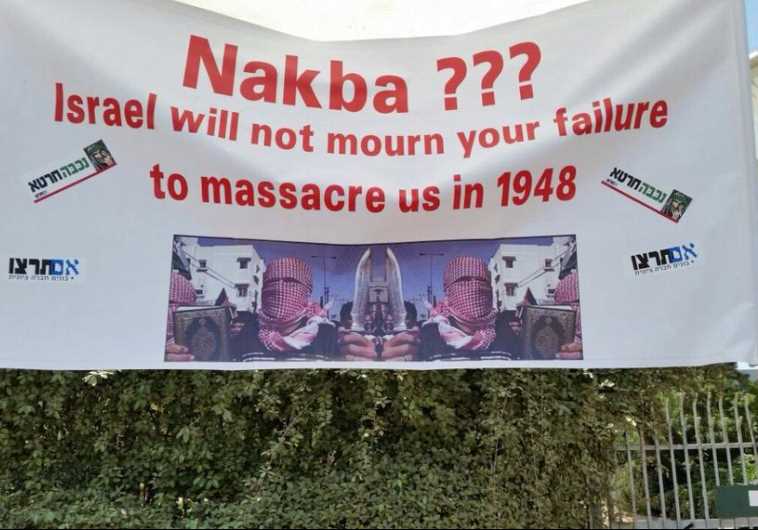'Israel unwilling to understand Nakba, the trauma that constitutes Palestinian identity'
The Van Leer Jerusalem Institute rejects criticism it is comparing Holocaust to Nakba in upcoming controversial event
 A poster shown at the Nakba Day commemorations in Tel Aviv University(photo credit: IM TIRTZU)Updated:
A poster shown at the Nakba Day commemorations in Tel Aviv University(photo credit: IM TIRTZU)Updated: